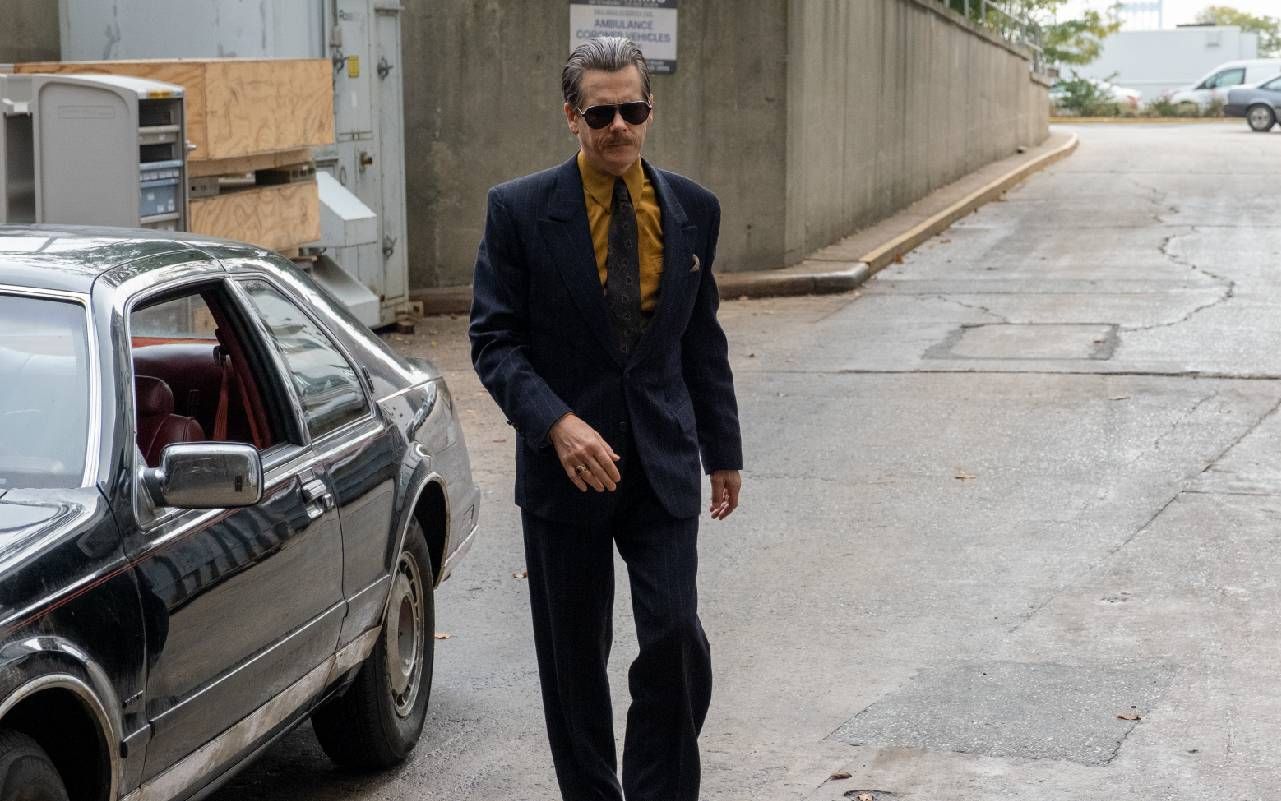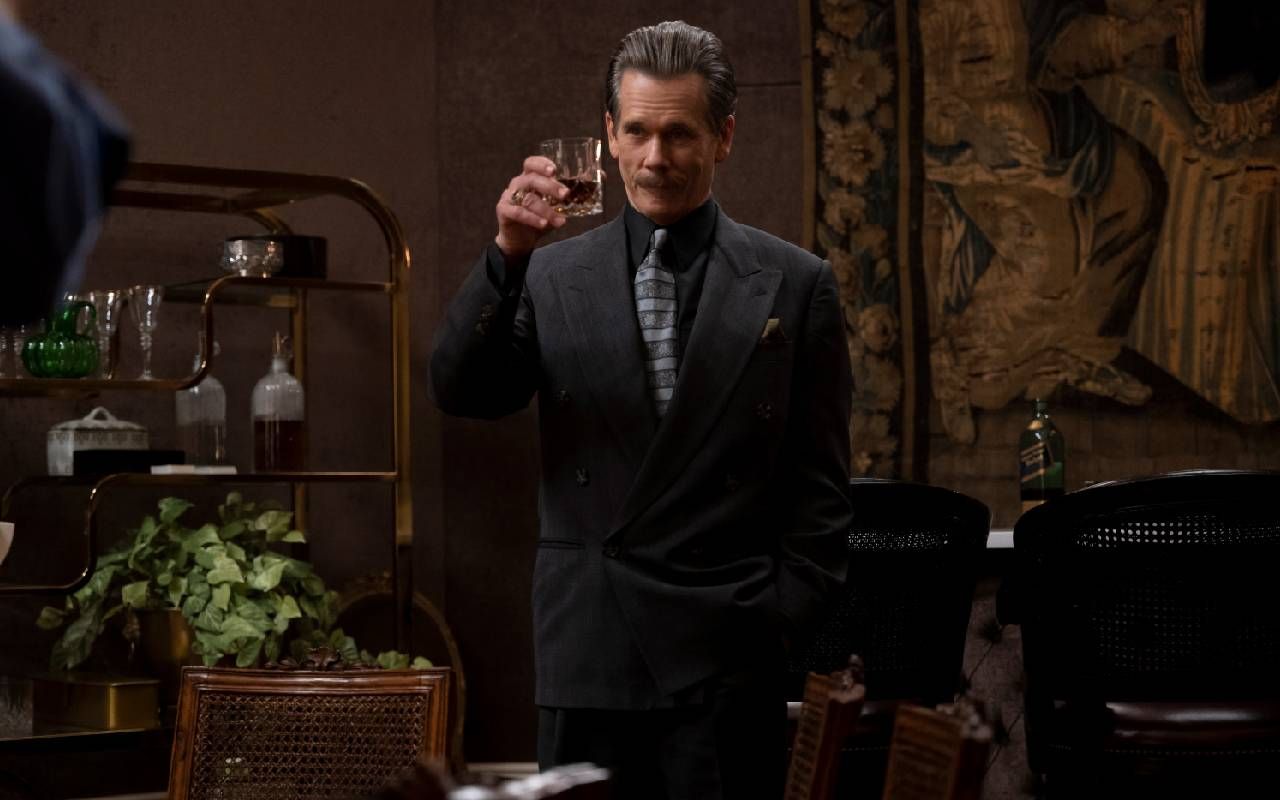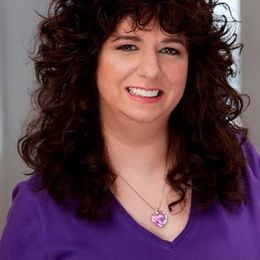Kevin Bacon Talks Acting, 'City on a Hill' and Interesting Characters
Admitting he's never had a 'career plan,' the popular actor continues to shine in a variety of roles
The first time I remember seeing Kevin Bacon, he was on the big screen trying to convince John Lithgow and a town full of religious folks that dancing was just fine to do. The year was 1984, and the unforgettable hit film was "Footloose."

That's what I consider his breakout hit — but only because at the time, I was too young to have seen his previous three big movies: "National Lampoon's Animal House," "Friday the 13th," and "Diner," the Barry Levinson hit that was filmed in Baltimore, the very city I was living in.
I also hadn't learned that you could be under 17 and still get into R-rated movies. But that's a story for another day.
Bacon, 64, took time to talk with Next Avenue. What follows is our interview, edited for length and clarity.
Next Avenue: Why did you decide to get into acting?
Kevin Bacon: I wanted to be an actor before I knew what an actor was. I remember in my earliest memories, walking into a room as a child and just wanting people to look at me, wanting to be seen, wanting to perform before I really knew what performing was. Some actors like to pretend that they just want to disappear. I don't quite buy it, you know? I think that we're people who want to be seen. We want to be loved by people and make them feel something.
"I wanted to be an actor before I knew what an actor was."
Years later, when I was about ten, I knew I wanted to be famous, and I wanted to be some kind of a, for lack of a better word, "pop star," a popular star. Whether it was going to be a musician or a singer or an actor, I didn't really care. I wasn't a good athlete, so that was never going to happen. But I just knew that I really, really, really wanted to be famous. I wanted to be on the cover of a magazine.
In Philly [where he was born and raised], we had a dollar second-run movie house. They would take movies that had been out of the theaters for a year or so, and then have a little sort of, like mini-Dustin Hoffman film festival, where they had "Midnight Cowboy" and "The Graduate" back to back. I saw "Midnight Cowboy," and I thought to myself, 'Wow, where did they find this homeless guy, and where'd they find this cowboy to be in a movie? And then I saw "The Graduate," and I went, 'Holy s***! That's the same guy.' A lightbulb went off in my head. I said 'That's what I want to do. I want to lose myself in a role and become something that I'm not.'
I also read that at one point you decided you didn't want to be the "pop star," the stereotypical leading man, but instead wanted to be a character actor. Is that true? If so, how did changing this affect your overall career?
It put my career back on track because after "Footloose" I was a leading man and a pop star. If you look at the few years after that, the movies where I was in the lead and above the title, they were one failure after another. Just none of them worked at the box office. I mean there's some that were better than others. But it just wasn't working, and I had been told — these silly Hollywood rules — but somebody said, 'Listen, kid, you know, you're only going to get three bombs, and then you're going to be gone.' And I was about five bombs in.
Oh no.
I had an agent who said to me, 'I want to get you back on track. I remember your work from off-Broadway.' I did a lot of off-Broadway for years in New York, and it was all character work and smaller roles — prisoners, junkies and all kinds of characters. She said, 'I think you should do that in the movies.'
So, the first job that she sent me on that was sort of in that pocket was "JFK." [Bacon played a gay hustler named Willie O'Keefe.] It took me about four days. It was an incredibly successful movie, and it was a very, very small part. People were surprised to see that's what I did, and that totally changed things. It turned things around for me. To this day, I'm still here.
I was just saying this the other night: One thing I have so much gratitude about is that the roles I get are varied, you know? They're just all over the map.
They absolutely are. I was looking back at your entire career, and one of the movies my husband and I just loved you in was "Murder in the First," which wasn't a huge box office smash. But it was such a good film.
Going back to when I made that change, "Murder in the First" was a direct result of "JFK." That was absolutely great to be able to do that, and to go do [the TV series] "The Following." Yeah, he's a tortured guy, but he basically is a leading man. I feel a lot of gratitude for where my career is.
Getting into interesting characters, you've been playing Jackie Rohr in "City on a Hill." While I would describe him as a little despicable, there's still this part of …
A little?
Well, okay, he's really despicable. He's such a slime ball. But there's a part of him that still wants to put the bad guys in jail, but he knows he's doing the wrong thing a lot of times to accomplish this. How would you describe him, and what do you like or not like about him?
He's complicated. I mean in your description of him, you're describing a pretty complicated guy.
Yeah.

So, exactly what's great about playing this character is he's not one thing or another. For one thing, he's a streetwise kid who had a very tough upbringing and came from no money and really rough circumstances, and yet, he made his way through college. He's, frankly, very well-read, and incredibly verbose and has this crazy knowledge of everything, whether it's true or not — because he does spout a lot of [bull]. But he has definitely read a lot of stuff. One of my favorite parts of the show is that you never see Jackie read a book, and yet, he just seems to be able to quote countless amounts of books.
Other characters do a double take sometimes because he just said something that makes him seem like such an ass, and then he brings out this life quote and says, yeah, that's by so-and-so, and you see the reactions. It's really cool, actually.
Also, his moral compass is spinning around in a very oddball kind of way. It's like he definitely thinks that the ends justify the means, and he is not above doing really terrible things and has an often very backwards view of the world and people. At the same time, he's not a sociopath. There's a part of him that wants to try to do some version of the right thing, his version of the right thing — the right thing according to Jackie's world.
In a way, what myself and the writers kind of had to create was Jackie's world and his own specific ethos which is not really necessarily fitting into the rest of the world. But that's the world that he is living in, and that's the world that he is going to fight for.
The other thing that's kind of interesting about the character, for me, is that from an age standpoint, he's a guy who is seeing his power trickle — his physical power, sexual power, his political power, all of these things. He's starting to be on the back side of all that.
And so, a lot of what he does — whether it's on a personal level, a physical level, a political level, sexual level, the crime/business kind of level — is to try to hold onto that power. I think that's something that a lot of men, specifically men at my age and Jackie's age, are trying to do and are struggling with all the time.
Your latest movie is "One Way." Tell me a little bit about your character. Also, IMDB is listing him as Fred Sullivan Sr./A-hole. So, that intrigued me.
Yeah. He is. He is, and he is referred to as an a-hole quite a lot in the film. It's a fun little turn for me. It's not a huge part. But part of the reason that I wanted to be involved in it was Machine Gun Kelly [the rapper who acts under the name Colson Baker] because I've seen his work as an actor, and I thought he'd been doing some really great work. And this was an opportunity to play his dad. My character is just a bad dude. I think of him as kind of a career criminal. He does drugs, drinks a lot, has a lot of tattoos.
"I get tired of some of the stuff that surrounds it, you know, but the actual time between 'action' and 'cut,' I still really love."
And he's got a very contentious relationship with his son. He is the opposite of a nurturing father, and he gets pulled into this world. Colson's character needs me, and the last person that he wants to call for help is me. And I just make him suffer. My character is just despicable. Jackie, every once in a while, has a redeeming kind of moment, you know?
But Fred Sullivan Sr. doesn't?
Not really, no. Not in the course of this film. Now, that being said, when I do play human beings, it's very important to me to make them … we throw the term 'monster' around a lot when someone does terrible things.
I don't care how bad the things are that you do. You're still a human being, and so that's what I try to do in terms of backstory. You don't really learn that much about this character in terms of his backstory, but it's still important for me to delve into it.
Is there anyone you still want to work with, any kind of project you haven't done that you want to, or just something else you want to do?
You know there's so many people that I would love to work with. And it's not even just the 'old guard,' you know? Someone new pops up, directs some super-cool movie, and you go, 'Oh God, I would love to work with him or her.' And actors, same deal. There are constantly good, talented people out there that I haven't worked with.
In terms of something that I want to do, I never really think in those terms.
It's like what happens is it comes along, and then I think, 'Yeah, that's good. I want to do that script, idea, book.' They don't all come together, necessarily. But when they do, I do it.
I think what you're talking about is a career plan, and that's something that I've never really been able to do. I admire people who have said, 'At that point in my life, I'm going to be in the number one movie in the country.' I've just never been that guy, you know? I say what's next, what's down the road, what are we doing this year? Let's look for the next gig.
I've read that you've done some directing, starting with "Losing Chase," and even an episode of "City on a Hill." Would you like to do more, or does it depend on what comes up, like you just said?
I would love to do more. The thing about directing is that I don't want to stop acting. Some people say that they're done with acting; they're not into it anymore, so now they're going to be focused on being a director. Again, I really admire that, too, but I'm not there. I love being an actor, and the thing about directing a movie is that's a year of your life. You have to really say, okay, I'm done, I got to shoot, I got to prep, raise money, edit, release.
And that means, it's pretty consumptive. So, you have to say no acting, no music, nothing else for at least a year, and I don't think I'm really quite there in terms of that because I still really do love acting. I get tired of some of the stuff that surrounds it, you know, but the actual time between 'action' and 'cut,' I still really love.
Editor’s note: See Kevin Bacon on "City on a Hill" on Showtime, in the film "One Way" with Machine Gun Kelly, and on tour with The Bacon Brothers, coming to a city near you. Or on Facebook, singing to his goats.


